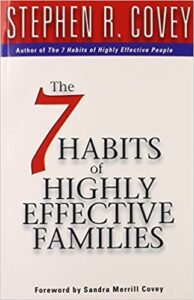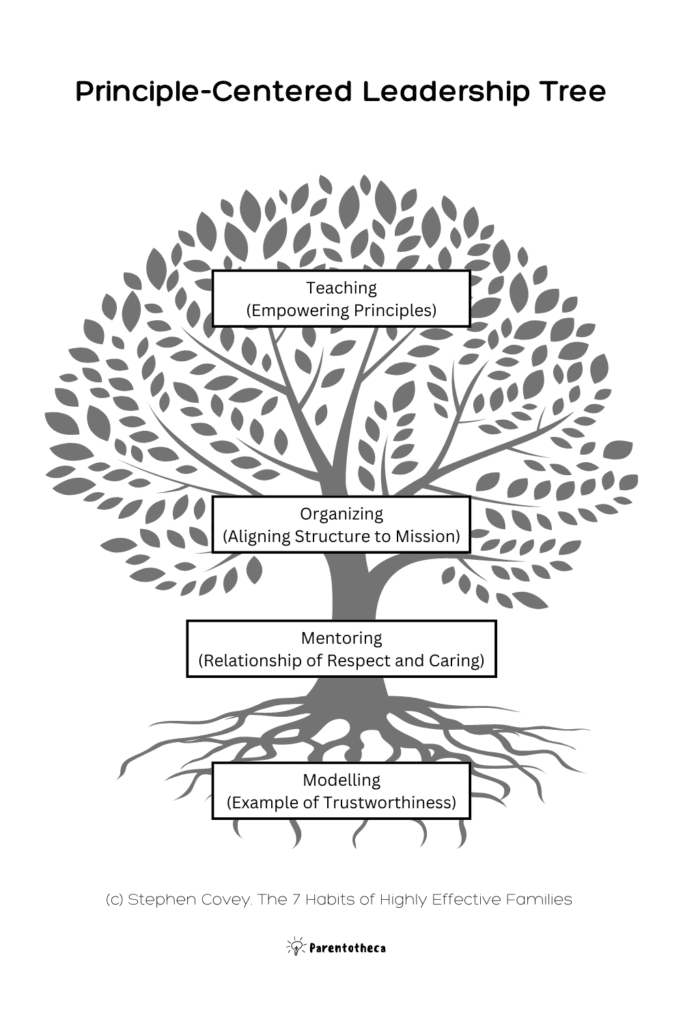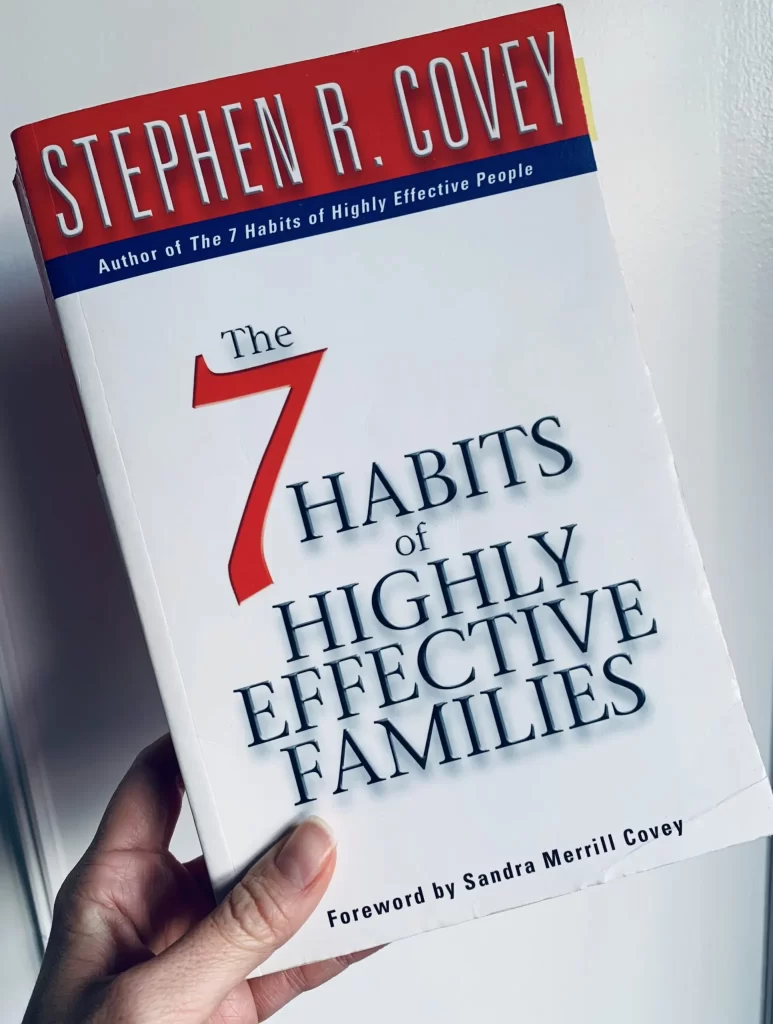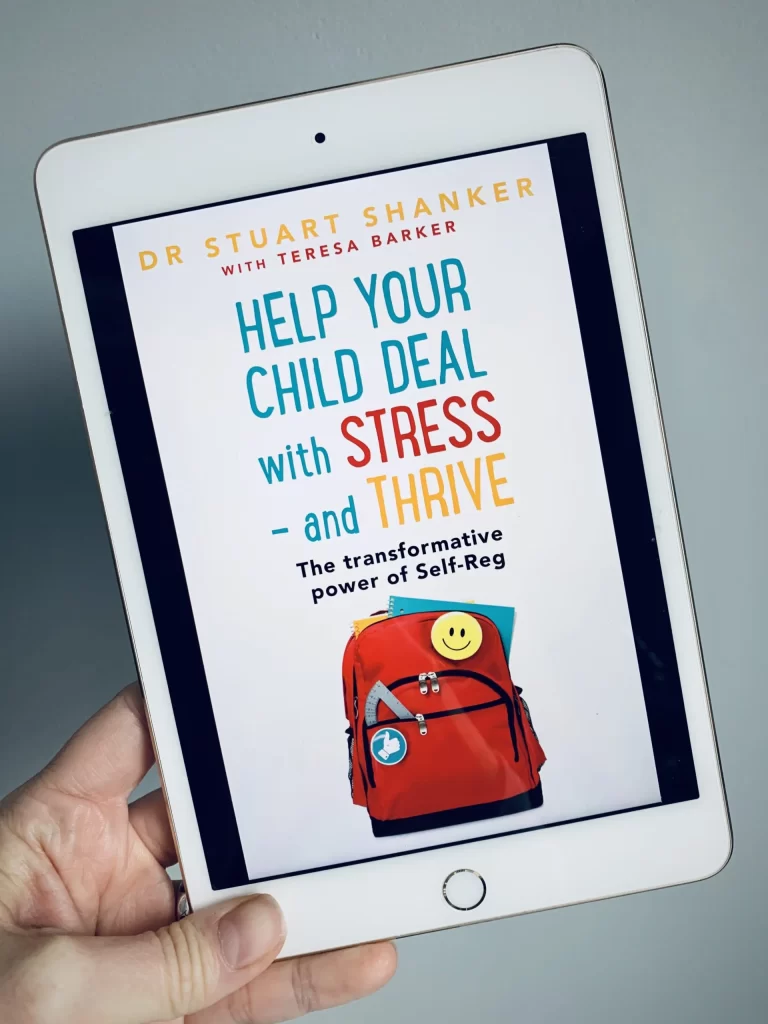 The 7 Habits of Highly Effective Families. Book Summary
The 7 Habits of Highly Effective Families. Book Summary
Stephen R. Covey
Simon & Schuster UK Ltd; (1999)
About the author
Stephen Richards Covey (October 24, 1932 – July 16, 2012) was an American educator, author, businessman, and keynote speaker. Stephen Covey was co-founder and vice-chairman of Franklin Covey, the global professional services firm. In 1985 he founded the Covey Leadership Centre – now part of FranklinCovey – and the Institute for Principle Centred Leadership in Utah. Born in 1932, he gained an MBA from Harvard Business School and a doctorate from Brigham Young University, where he was subsequently Professor of Organizational Behaviour and Business Management. At the Covey Leadership Centre, through his writing – chiefly The Seven Habits of Highly Effective People published in 1989 (which has sold over 25 million copies) – and through consultancy (he was invited to Camp David by President Clinton), his message has reached millions of individuals in business, government and education. In 1996, Time magazine named him one of the 25 most influential people. A father of nine and a grandfather of fifty-five, he received the Fatherhood Award from the National Fatherhood Initiative in 2003.
About the book:
“Good families – even great families – are off track 90 percent of the time! The key is that they have a sense of destination. They know what the “track” looks like. And they keep coming back to it time and time again.
It’s like the flight of an airplane. Before the plane takes off, the pilots have a flight plan. They know exactly where they’re going and start off in accordance with their plan. But during the course of the flight, wind, rain, turbulence, air traffic, human error, and other factors act upon that plane. They move it in slightly different directions so that most of the time that plane is not even on the prescribed flight path! Throughout the entire trip there are slight deviations from the flight plan. Weather systems or unusually heavy traffic may even cause major deviations. But barring anything too major, the plane will arrive at its destination.
Now, how does that happen? During the flight, the pilots receive constant feedback. They receive information from instruments that read the environment, from control towers, from other airplanes—even sometimes from the stars. And based on that feedback, they make adjustments so that time and time again, they keep returning to the flight plan.
The hope lies not in the deviations but in the vision, the plan, and the ability to get back on track.
The flight of that airplane is, I believe, the ideal metaphor for family life. With regard to our families, it doesn’t make any difference if we are off target or even if our family is a mess. The hope lies in the vision and in the plan and in the courage to keep coming back time and time again. […]
The key is in having a destination, a flight plan, and a compass.”
Covey’s number 1 bestseller, The 7 Habits of Highly Effective People, has sold 25 million copies and has been named one of the most influential books in the world. In The 7 Habits of Highly Effective Families, as you’ve probably guessed, he applies his legendary principles (or habits) to a family context, so we can all learn how to build a great family. And Coveys are definitely a great family to learn from!
Here Covey teaches us how to develop our destination, a flight plan and a compass, so our family will always come back on track and thrive despite the circumstances. In each chapter, he shows us how to build a beautiful family culture and gives practical advice on how we all can become transformational leaders in our families.
I recommend the book to everyone who truly believes family is important and looks for practical solutions to create a great family and leave a legacy.
The book is brilliantly structured and packed with great practical insights. Let’s jump to our favourite ideas.
Key insights:
Chinese bamboo tree
“I’d like to suggest that in everything you do in your family, you keep in mind the miracle of the Chinese bamboo tree. After the seed for this amazing tree is planted, you see nothing, absolutely nothing. For four years except for a tiny shoot coming out of a bulb. During these four years, all the growth is underground in a massive, fibrous root structure that spreads deep and wide in the earth. But then in the fifth year the Chinese bamboo tree grows up to eighty feet!”
Covey shares this idea at the beginning of the book, and I absolutely love this metaphor! Every single experience in our children’s lives has an effect on whom they would become. You may not see the changes immediately, but your consistent effort and great leadership will make a difference in the long run.
That’s the Compound Effect in its essence.
The 7 Habits of Highly Effective Families
Covey tells us that in order to develop a beautiful family culture that will help every family member thrive in life, we need to live by seven principles (or habits):
Habit 1: Be proactive
This habit “is the key that unlocks the door to all the other habits.” That’s about our decision to become the creative force of our own lives. More on that below.
Habit 2: Begin with the end in mind
This habit “is to create a clear, compelling vision of what you and your family are all about. Going back to the airplane metaphor, Habit 2 defines your destination. And having your destination clearly in mind affects every decision along the way.” It’s all about creating your “destination”: once you have it clearly in mind, it will directly affect all the decisions you take along the way. We’ll talk about it in these notes.
Habit 3: Put first things first
That’s about closing the gap between our belief that family is important and our actions showing that family is a priority. Again, as it is one of the fundamental principles, we’ll discuss it in greater detail below.
Habit 4: Think “Win-Win”
“It’s the fundamental paradigm of seeking mutual benefit, or the “Golden Rule.” It’s the underlying motive, the nurturing attitude out of which understanding and synergy grow.”
That’s about our readiness to find the best possible solution where everybody wins. And that’s also about building a family culture where every family member feels loved and valued. To move toward it, we first need to develop an abundance mentality (there is plenty of love for everyone!), which is “the spirit of family” and the spirit of “we”! The basic principle of this habit is: “What is important to another person must be as important to you as the other person is to you.” Want the best for every family member and be ready to love and sacrifice to make it happen – that’s the spirit of win-win.
Habit 5: Seek first to understand…then to be understood
“It’s the method, the pathway that leads to reach interdependent interaction. It’s the ability to step out of your own autobiography and really get into the head and heart of someone else.”
Covey says that most mistakes with our children and other family members are not the result of bad intent, but that’s because we often don’t understand one another’s feelings and needs. And understanding between family members is crucial for rich, rewarding and transformational family relationships. So this habit is about empathetic listening, understanding the uniqueness of each family member – their developmental stage and language of love, being vulnerable and creating a loving atmosphere for vulnerability, giving honest feedback, etc. This habit helps us listen and speak from the heart. Actually, Covey’s ideas on habit 5 resonated a lot with Rosenberg’s wisdom in Nonviolent Communication.
Habit 6: Synergize
“It’s the result, the end product the rich reward of the effort. It’s creating transcendent third-alternative solutions. It’s not “your way” or “my way”; it’s a better, a higher way.”
Synergy is about creative problem-solving and cooperation. To synergize effectively, we need to celebrate each other’s differences and treat them as strengths rather than weaknesses in the relationships (that’s when Strengths-Based Parenting becomes handy). Covey claims that synergy creates the family’s immune system – to develop antibodies to prevent a full-blown issue, we treat each problem as a vaccination. Moreover, we involve family members in the problem and work out the solutions together. Covey writes:
“A healthy immune system fortifies you against four “cancers” that are deadly to family life: criticizing, complaining, comparing, and competing.”
Habit 7: Sharpen the saw
“Every family must take time to renew itself in the four key areas of life: physical, social, mental, and spiritual.”
To sharpen the saw in these four dimensions, we need to create family traditions: family dinners, family vacations, holidays, learning together, worshipping together, working together, serving together, and having fun together.
These are the 7 habits in a nutshell. Let’s look at some of them in greater detail.
Habit 1: Be Proactive
“Habit 1 – Be proactive – is the ability to act based on principles and values rather than reacting based on emotion or circumstance. The ability to do that comes from the development and use of four unique human gifts that animals do not have.”
That’s habit number 1, and as Covey points out, it is the key to all the other habits. Once we proactively take responsibility for our actions, the whole world changes.
Nathaniel Branden also highlights it in The Six Pillars of Self-Esteem. That’s at the heart of Jordan Peterson’s philosophy – proactivity and taking responsibility for your actions is the key to a fulfilled life. In fact, pretty much every self-help book is about it. Seriously.
Firstly, we all need to understand that we are in charge of our response to whatever happens to us. To be able to choose the best possible response, we all need a pause button that enables us to stop before reacting. Covey teaches us that to do this, we need to work on 4 unique human gifts:
- Self-awareness (ability to observe our thoughts and life in general to make changes and improvements);
- Conscience (enables us to evaluate what we observe about our life);
- Imagination (ability to envision something entirely different from our past experience);
- Independent will (the power to take action).
And the fifth gift which we all need to work on is a sense of humour ☺
Covey reminds us that the word “responsible” consists of two parts: “response-able”. That means that we are able to choose our response. And that’s the essence of pro-activity. Hal Runkel also presents this idea in his great book Screamfree Parenting.
To better understand how we can apply the proactivity idea to our family life, Covey offers us to imagine the Emotional Bank Account. We can make deposits – proactively doing things that strengthen our relationship, or we can make withdrawals – reactively doing the things that decrease our trust. We have to aim at having a positive Emotional Bank account to communicate and solve problems with another person effectively.
Things that add to the Emotional Bank account? Being kind, apologizing, loyal to those not present, making and keeping promises, and forgiving.
And yes, that’s one of the key ideas in Calm Parents, Happy Kids by Laura Markham ☺
Proactivity is the king of all habits, but at the same time, one of the most difficult to develop.
So, a question for you – how can you act more based on your principles and values rather than emotions and circumstances?
Habit 2: Begin with the end in mind
“Habit 2 – Begin with the end in mind – is to create a clear, compelling vision of what you and your family are all about. Going back to the airplane metaphor, Habit 2 defines your destination. And having your destination clearly in mind affects every decision along the way.”
Habit 2 is about creating a family mission statement that would give you a destination and a compass.
Here is a brief guidance from Covey on how to create your family mission statement:
- Explore what your family is about – brainstorm with all the family members on what are your core principles, values, and destinations.
- Write your family mission statement – create a poster and put it somewhere visible (e.g. fridge, next to the dinner table, etc.)
- Use it to stay on track – refer back to it once working on a problem, discuss it during family meals, and use it as guidance for your decisions.
“The family mission statement literally becomes the DNA of family life.”
Initially, you’ll have to do a lot of inner work to figure out what your vision and values are. The key here is to get on the same page with your spouse – the shared vision and values of both parents are of paramount importance in the family.
P.S.: I’ve picked The 7 Habits of Highly Effective Families after reading Bruce Feiler’s great book The Secrets of Happy Families, where he devoted an entire chapter to the importance of creating the Family Manifesto.
P.P.S.: we are currently working on our Family Mission Statement – we’ll definitely write an article on this!
Habit 3: Put first things first
“There is no way we can be successful in our families if we don’t prioritize “family” in our lives.”
It’s not enough to say that your family is important. You have to ACT that it is important and prioritise it above other things you have. So Habit 3 is all about integrity.
Covey teaches us that there is no substitute for the special relationship and connection between a parent and a child – so we need to be present in our child’s life, especially when he is very young. That also resonates with Jordan Peterson’s statement – you have little kids only for four years, then when it’s done, it’s done.
Covey offers us to ask ourselves a powerful question: Who’s going to raise my children – today’s alarmingly destructive culture or me?
Once you have a family mission in place, create a structure. Covey suggests we start with setting up family rituals: family meetings (Bruce Feiler talks about it in The Secrets of Happy Families – check out our notes for the agile framwork) and one-on-one bonding time (or, like Laura Markham puts it – “special time”) with each family member. Secret ingredient – to make it fun.
The Principle-Centered Family Leadership Tree
“Any parent (or son, daughter, brother, sister, grandparent, aunt, uncle, nephew, niece, or other person) who really wants to become a transition person – an agent of change – and help a family move higher on the destination chart can do it, particularly if the person understands and lives the principles behind the four basic family leadership roles. Because family is a natural, living, growing thing, we’d like to describe these roles in terms of what we call the Principle-Centered Family Leadership Tree. This tree serves as a reminder that we’re dealing with nature and with natural laws or principles. It will help you understand these four basic leadership roles and also help you diagnose and think through strategies to resolve family problems.”
In the book, Covey talks about four destinations each family can end up at: survival, stability, success and significance. As you can guess, we all want to be at the success and significance level more than at the other two levels. To do so, we need to effectively fulfil four family leadership roles:
- Modelling: that’s leading by example, so family members see our example and learn to trust us. That’s the root of the Principle-Centered Family Leadership Tree, and every other principle is based on it.
- Mentoring: that’s about building caring and loving relationships in our family and investing in the Emotional Bank Account. Family members feel our unconditional love and learn to value themselves.
- Organizing: that’s about aligning structure to our family mission to help us accomplish what is really important. That’s how we incorporate all the wisdom into our daily life so all the family members experience order in their lives and grow.
- Teaching: “This is the point at which your efforts help “empower” family members so that they develop the internal capacity and skill to live effectively. And this is at the heart of what parenting and family are all about”. That’s all about creating a conscious competence in our children.
In a nutshell, the idea of the Leadership Tree represents how you can put all seven habits into practice. That’s about building a system which will help your family thrive.
What is important, though, is that we need to understand that we need to fulfil ALL these roles and in this particular sequence (e.g. teaching your child healthy eating habits will not be effective if good modelling is not in place, or if you don’t find time to cook healthy meals). Covey reminds us: “People do not hear if they do not feel and see. The logic of life will not take root if you don’t care or if you lack credibility.” Can’t agree more!
Here is a visual model:

P.S.: if you reflect on your family life, you are already fulfilling each of these four roles. The question is HOW are you fulfilling them? Can you fulfil them in a way that will help you create the family you want?
Focus on important things
“Clearly, a focus on what is truly important is far more effective than a focus on what is merely urgent. It’s true in all walks of life- including the family. Of course, parents are going to have to deal with putting out fires that are both important and urgent. But when they proactively choose to spend more time on things that are truly important but not necessarily urgent, it reduces the crisis and “fires.””
I absolutely love this! We often focus on urgent stuff and ignore “not-so-urgent” but very important things. And the truth is that everything that is important to us – good health, strong relationships, great business – needs constant work and regular investments.
Same with family. If we constantly put deposits in our family members’ Emotional Bank Accounts and help kids develop important skills they will need to thrive, we will have fewer emergencies to deal with. Put the big family rocks first. Otherwise, you’ll spend more time trying to repair broken relationships, save marriages, or influence kids who are being pulled by social forces outside the family.
Prevention is always better than treatment.
Action steps for you:
- Discuss with your family what you can do to build Emotional Bank Accounts in the family?
- Create a family mission statement and live by it.
- Discuss with your family which family traditions are the most important to you. Talk about how you can make them even more special. Consider establishing new fun family traditions.
Quotes from the book:









